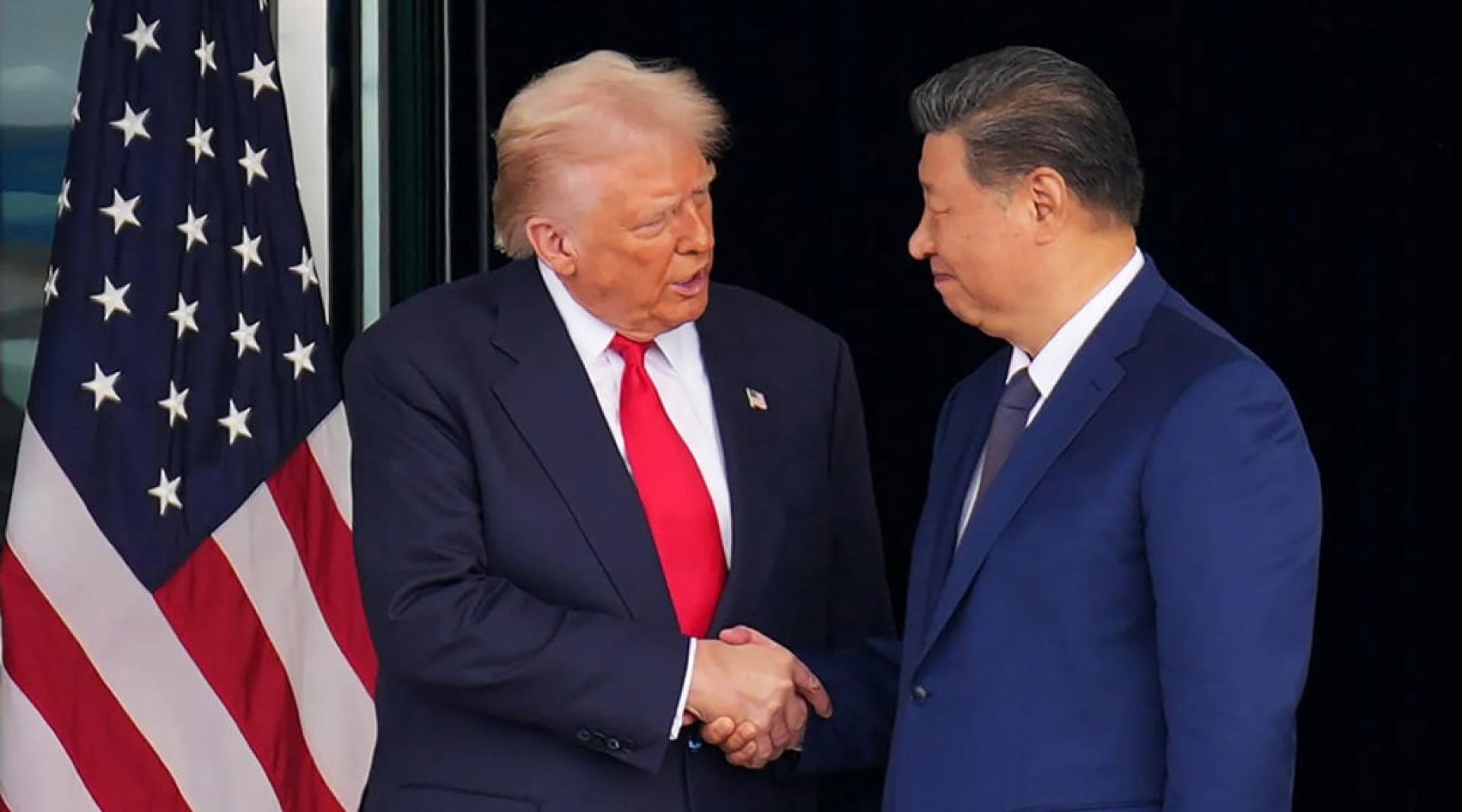The White House has released a fact sheet on the "Trump-Xi Meeting," stating that U.S. President Donald Trump and Chinese President Xi Jinping reached a “historic” trade agreement last week in South Korea. Under the Beijing agreement, China made four commitments involving the drug fentanyl, rare earth export controls, retaliatory measures against U.S. companies, and soybean purchases, among others.
On the 1st, the official website of the White House published the fact sheet of the “Trump-Xi Meeting,” stating that the agreement reached by Trump and Xi rebalances U.S.-China trade and marks a successful conclusion to Trump’s trip to Asia. “This major victory safeguards both America’s economic strength and national security, while putting American workers, farmers, and families first.”
The fact sheet shows that, under the agreement, China has committed to preventing precursor chemicals used to manufacture fentanyl from flowing into the U.S.; canceling its current and proposed controls on the export of rare earth elements and other critical minerals; ending retaliatory measures against U.S. semiconductor manufacturers and other large American enterprises; and opening up the Chinese market to U.S. soybeans and other agricultural products.
China will also take 10 actions, including suspending the globally implemented broad rare earth export controls and related measures announced on October 9, 2025; at the same time, it will issue general licenses authorizing the export of rare earths, gallium, germanium, antimony, and graphite to U.S. end users and their global suppliers. This license essentially cancels China’s export control measures implemented since April 2025 and October 2022.
China will also take major measures to prevent fentanyl from flowing into the U.S. Specifically, China will stop shipping certain designated chemicals to North America and will implement strict worldwide export controls on certain chemicals.
China will also suspend all retaliatory tariffs announced since March 4, 2025. This includes tariffs on major U.S. agricultural products such as chicken, wheat, corn, cotton, sorghum, soybeans, pork, beef, aquatic products, fruits, vegetables, and dairy products.
China will suspend or revoke all non-tariff retaliatory measures against the U.S. announced since March 4, 2025, including measures listing certain U.S. firms in China's End User List and Unreliable Entity List.
In the last two months of 2025, China will purchase at least 12 million tons of U.S. soybeans and, in 2026, 2027, and 2028, will purchase at least 25 million tons of U.S. soybeans annually. At the same time, China will resume purchases of U.S. sorghum and hardwood logs.
China will take appropriate measures to ensure that Nexperia, a semiconductor company within China, resumes its trading operations, allowing essential legacy chips to continue supplying the global market.
China will revoke the retaliatory measures implemented in response to the U.S. Section 301 investigations into China’s pursuit of dominance in the shipping, logistics, and shipbuilding industries, and lift sanctions on multiple shipping entities.
China will further extend the expiration date of its tariff exemption measures for U.S. imports, with the exemptions remaining effective until December 31, 2026.
China will terminate all investigations targeting U.S. semiconductor supply chain companies, including antitrust, anti-monopoly, and anti-dumping investigations.
The U.S., for its part, will take four actions, including reducing by 10% the additional tariffs imposed on Chinese imports to prevent fentanyl flows, effective from November 10, 2025, and suspending higher retaliatory tariffs on Chinese imports until November 10, 2026. During this suspension, the current 10% retaliatory tariff will remain in effect.
The U.S. will further extend the validity period of certain Section 301 tariff exemptions, which were originally set to expire on November 29, 2025, and have now been extended to November 10, 2026.
From November 10, 2025, the U.S. will suspend for one year the implementation of the "Interim Final Rule Expanding End User Controls to Cover Certain Entity Affiliates."
From November 10, 2025, the U.S. will also suspend for one year the countermeasures taken in response to Section 301 investigations into China’s pursuit of dominance in shipping, logistics, and shipbuilding. During this period, the U.S. will negotiate with China in accordance with Section 301, while continuing historic cooperation with South Korea and Japan to revitalize the American shipbuilding industry.
